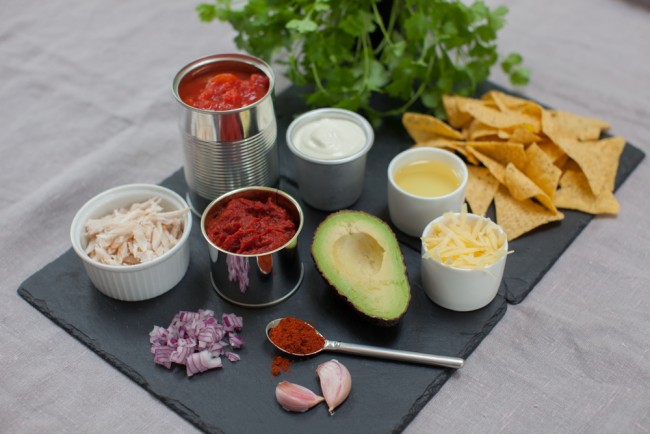Canned food plays a vital role in reducing food waste and helping the nation to transition to a circular economy. As consumers become more savvy about the unique features and benefits of this popular food packaging format, canned food is set to become the UK’s champion for food waste reduction.
Before we deep-dive into the detail, let’s step back for a moment and consider the wider context.
Global food wastage – an increasingly urgent issue
Approximately one third of food produced for human consumption – or 1.3 billion tonnes – is lost or wasted every year (Source: United Nations Food and Agriculture Organisation). In view of continued high population growth – which may reach 9.7 billion people by 2050 (vs. 7.9 billion people today) – and the projected loss of up to 250 million crop acres by 2050, the issue of food wastage is an increasingly urgent one.
In the UK alone, 10 million tonnes of food and drink are wasted every year, seven million tonnes of which come from our homes. That represents an estimated hit of £17 billion pounds to the nation’s pocket, and £500 to the average household. This figure rises to £700 for households with children. To a backdrop of the current cost-of-living crisis, such a waste becomes even less palatable. Things need to change quickly.
So what can you do on an individual basis to help combat food wastage?
Happily, there’s a high-impact decision that you can make today that will help tackle the problem. You just need to decide to make canned food a bigger part of your staple diet and to recycle your cans.
Over one billion litres of food are already saved globally thanks to metal packaging. In the UK, over 2.5 billion cans are recycled every year, representing a saving of 125,000 tonnes of solid waste. Stretched end-to-end, these recycled cans would extend three-quarters of the way around the Earth.
You can add your individual contribution to these encouraging figures simply by increasing your canned food consumption and recycling your cans. If we all adopt the change, together we’ll make a very concrete, very green difference.
How can increasing your use of canned food help reduce food waste?
Fortunately for the planet, your health, your convenience and your bank account, expanding the canned food element of your weekly food shop is easy. The positive impact on your diet, your food budget, your taste buds and the environment is significant in both size and importance.
Increasing your use of canned foods is an effective way to help protect the environment. It reduces waste, saves energy and preserves the planet’s natural resources. Here’s how:
1. Using more canned food reduces food and packaging waste because:
- The shelf life of canned food is a lot longer than most other packaging formats. Think three years (and up to five) rather than a matter of days, weeks or months. So keeping your pantry stocked with cans offers benefits in terms of convenience as well as delicious, cost-efficient meal planning.
- All food cans are made from either steel or aluminium. These are permanently available materials which can be recycled infinitely with no loss of quality.
- Cans are easy to recycle as separating them from other waste materials is simple. Magnetism is used to grab steel cans from the conveyor belt in a materials recycling facility whilst eddy currents lift out aluminium cans.
2. Using more canned food reduces energy consumption because:
- There’s no need for refrigeration in transit, in-store or at home.
- All canned food is cooked in the can so you only need to heat it up before eating it. This offers considerable time and energy savings.
- Every recycled can saves energy equivalent to powering a 10W energy-efficient LED light bulb for 24 hours, running one laundry load or watching TV for one hour.
3. Using more canned food reduces carbon emissions because:
- Each item of recycled steel packaging saves over one and a half times its weight in CO2.
Does canned food really also deliver taste and health benefits?
Not only is canned food generally less expensive than other food formats but, because the canning process locks in nutrients and vitamins of fresh ingredients at the height of their ripeness, the flavours are delicious. Plus given that the food is cooked in the can there’s also rarely need for preservatives. So, canned food gets the vote from our taste buds, our bodies and our bank accounts.
What’s next?
Canned food offers the consumers convenience of products which are healthy and affordable. Plus their long shelf life means they are always on hand when you need them. Canned foods require less energy to store and transport and empty cans are forever recyclable.
On that basis alone, what are you waiting for?! Join us on a canned food culinary adventure that’s good for the taste buds and good for the planet. (For starters take a look at our extensive recipe database: https://www.cannedfood.co.uk/recipes/)
